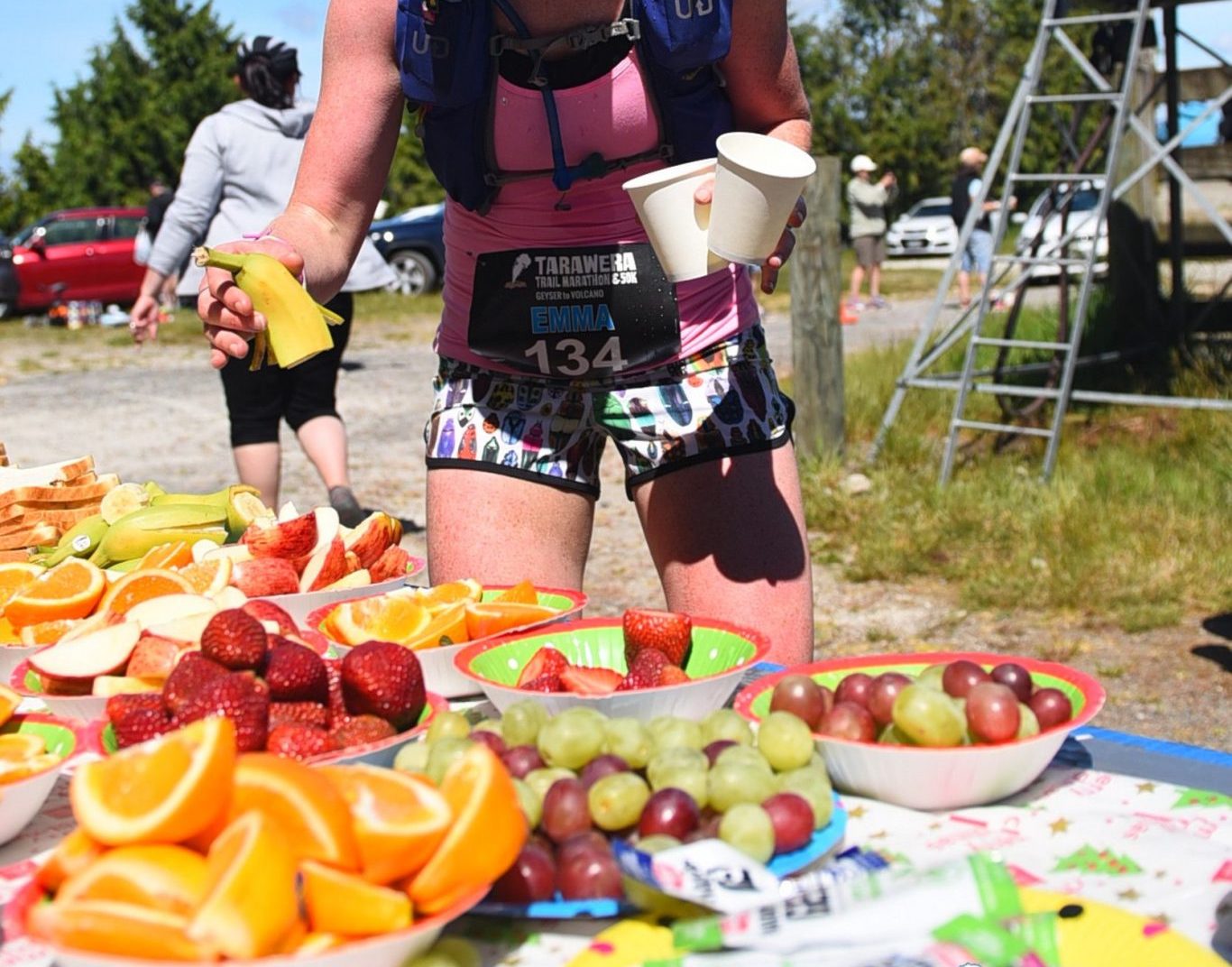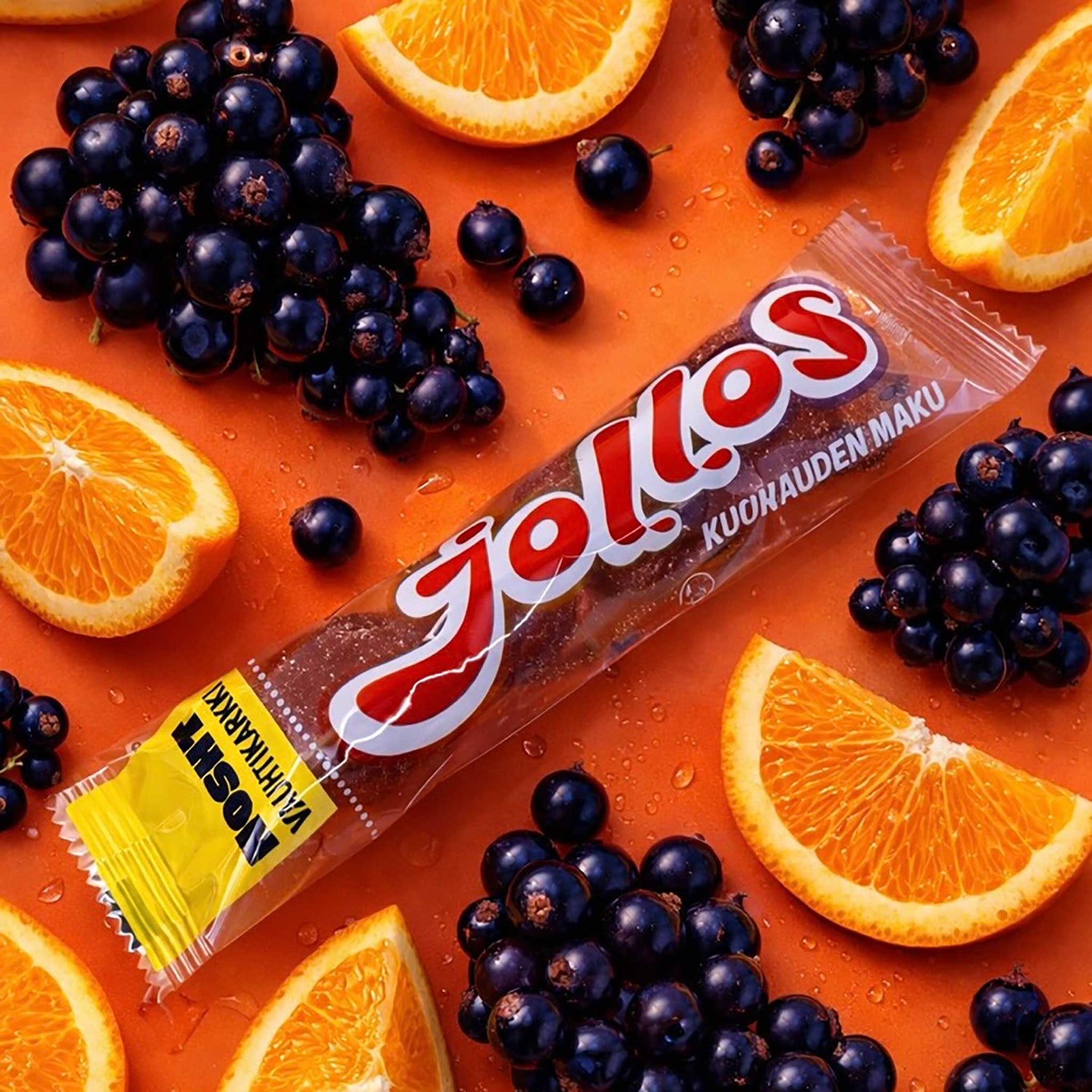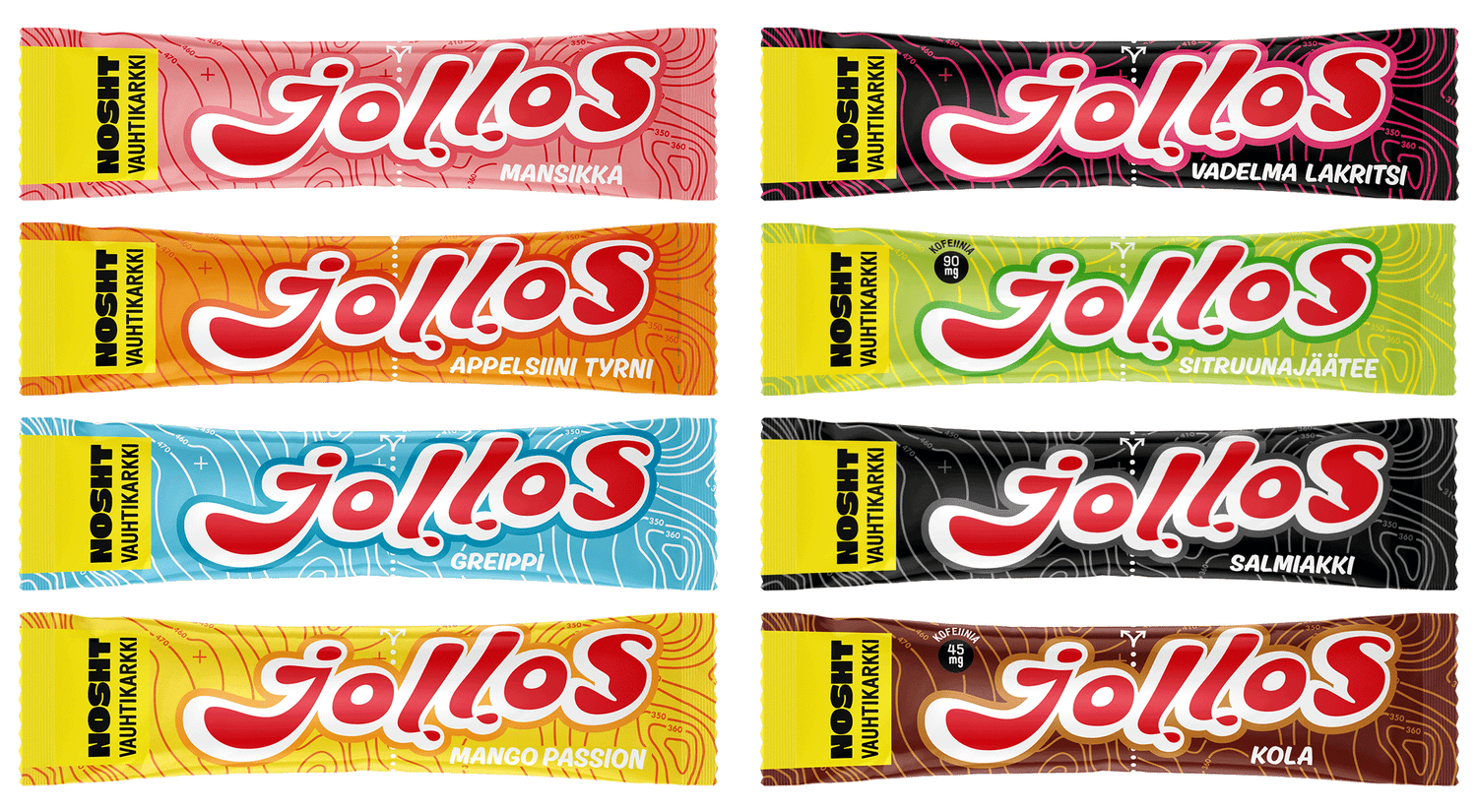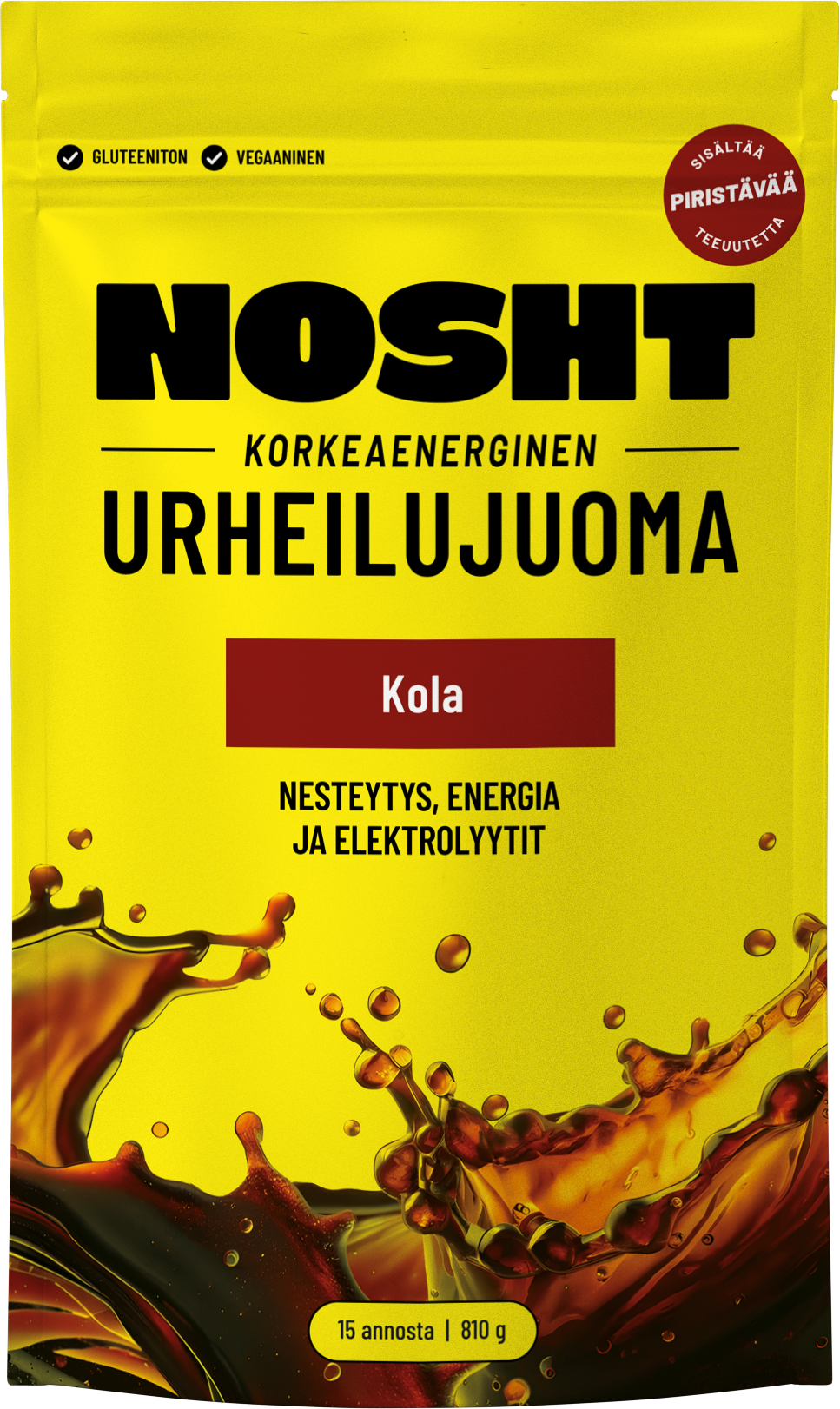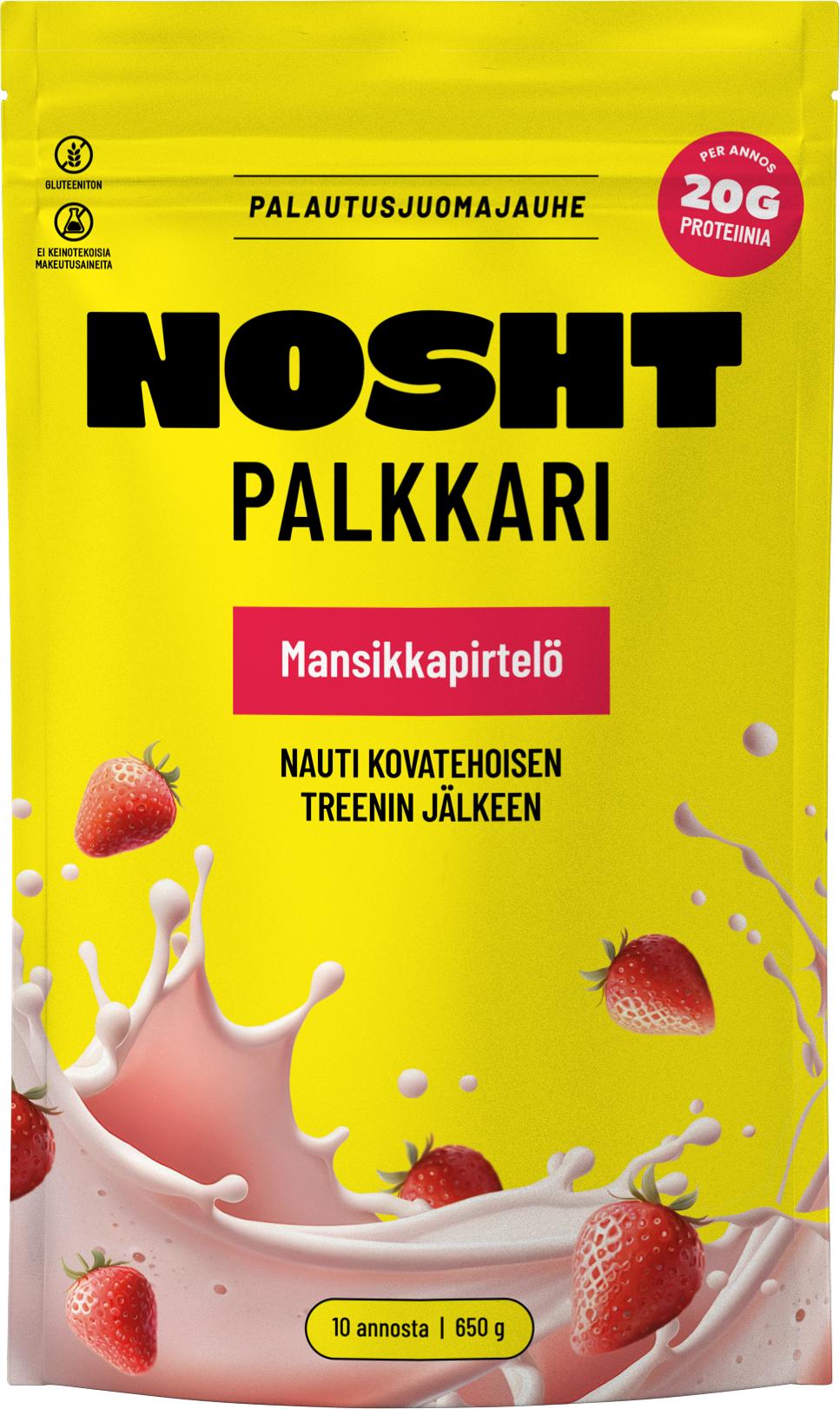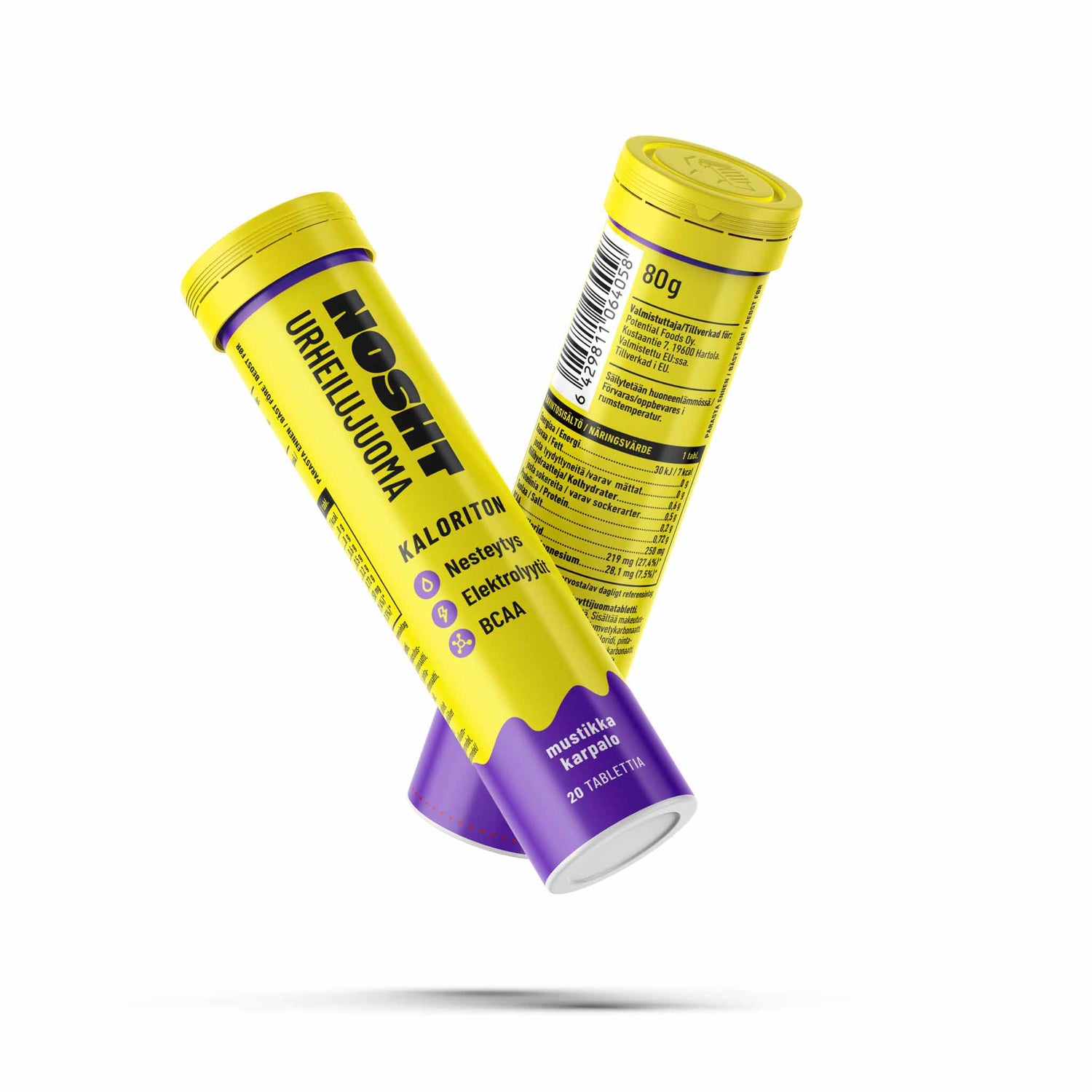What should I eat and drink during a trail running race? How do I plan my nutrition for the big day? Here’s some food for thought.
1: Know thyself
The key in race nutrition planning is to find products that suit your taste and gut. Do you like to take your carbohydrates in a solid or liquid form? Do you prefer sweet flavours or something tangy? Is there something that goes down the hatch no matter what the circumstance? Or something that you know will feel disgusting after a while?
Periodize your nutrition the same way you periodize your training. When the race season draws near, it’s time to look at your eating and drinking preferences if you’re not sure what works well for you.
2: Train your gut
Over 80 per cent of endurance athletes suffer often or sometimes from gastrointestinal problems. The groundwork for your race-day nutrition happens during the training season. Test different products to find out what works for your stomach.
Do the testing in a race-like setting. The stress of a long race day on your stomach is very different from that of a shorter, low-intensity workout. You can also train your gut to help it absorb energy and hydration better.
3: Get to know the route, aid stations, and conditions
In trail running, it’s not all about the length of the race. Will the course be technical with gnarly roots and slippery rocks, or is it very steep? How much time do you think it will take to finish the course? And how much time will it take if everything does not go according to plan?
A good rule of thumb is to take the time it would take to run the distance on a flat surface, multiple it by 1.5: if you run a road marathon in 4 hours, be prepared to spend 6 hours or more on the trails.
Before the race, check how many aid stations there will be. In some races, the distance between aid stations can be tens of kilometres, and you may need to carry a lot of liquid with you or even fill your bottles from a creek.
Check what the aid stations offer and plan what you will do in them. Do you want to eat something, or will you just refill your bottles? Are there food and drink available that you know will suit your stomach, or are you willing to take a risk?
Read through the race instructions carefully. Is there a minimum amount of water and energy you must carry? Will there be cups at the aid stations, or do you need to carry one? Is there mandatory emergency energy you need to take with you?
Check out the weather, too. When it’s hot, your body loses a lot of fluids and electrolytes. So make sure you factor the conditions in your race plan.
4: Make a plan and plan how you will stick to your plan
Now it’s time to make a detailed plan for the race. Take the following into account:
- Hydration: How much do you plan to drink in an hour? Will it be water or a sports drink? How much will you carry with you, and will you refill at the aid stations?
- Energy: How much energy do you need? How many grams of carbohydrates will you take in an hour? Do you want to take them in solid or liquid form or a combination of the two?
- Salt: How will you replenish the salt and other electrolytes lost via sweating? The easiest way is to have a sports drink with salt in it. If you plan to drink only water, make sure you get electrolytes from other sources, like your energy products, salt at the aid station or salt tablets.
- Variation: In longer races, flavour fatigue can become a real problem. Will you be able to eat the same thing hour after hour, or is it better to have different flavours?
- Motivation snack: Remember to pack something especially delicious that is only reserved for really bad times. Just knowing you have your special treat with you gives you a boost when the going gets tough.
- Emergency energy: Race organizers may require you to take a specific amount of extra energy with you. It may save your or someone else’s day.
Make a plan on how you will stick to your plan. Going by feel is a dangerous strategy, as we tend to forget to eat and drink enough at the beginning of the race. How often will you eat and drink? You can have your sports watch remind you to take your energy at specific intervals.
If your plan is to take 60 to 70 grams of carbs and half a litre of liquid in an hour, there is more than one way to do it:
- A piece of energy chews (20g carbs) every 20 minutes + 0.5l water or low energy sports drink = 60 grams of carbs/hour
- A piece of energy chews (20g carbs) every 30 mins + 0.5l High energy sports drink (0.5 scoops) = 65 grams of carbs/hour
- Piece of energy chews (20g carbs) once an hour + 0.5l High Energy Sports Drink (1 scoop) = 60 grams of carbs/hour
- 0.5l of High Energy Sports Drink (1.5 scoops) = 75 grams of carbs/hour
Once you know how much energy and liquid you need and in what form, you can calculate how much you need to carry with you. Again, don’t underestimate the time it will take, but take some extra with you, just in case.
5: Listen to your feelings and enjoy the run!
Now you’ve filled your pack with the right food and drink for the race. Remember to enjoy the race, the scenery and meeting cool people along the way!
Follow your plan but also remember to listen to your feelings. If you’re feeling low and start to question why you signed up for this stupid s**t in the first place, it’s probably time to take some extra energy. Remember to also drink even if you’re not feeling thirsty.
